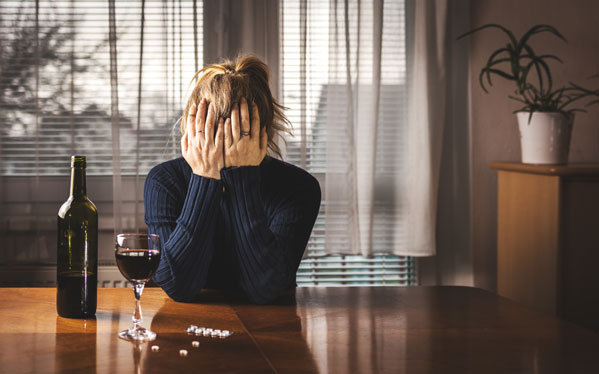What is addiction?
The most common addiction is to alcohol and drugs although addiction encompasses many other substances and behaviours. Addiction is a disfunction of the brain’s reward, motivation, and memory system. It controls how your body craves a substance, or a behaviour, and causes compulsion and obsession when craving the rewards. This compulsion in turn means the addict loses control and is oblivious to, or disregards, any negative consequences. Addiction is a disease and affects people from all walks of life and socio-economic groups.
You think your partner or family member is an addict
Living with an addict isn’t easy and leaving isn’t easy either, especially when you love someone. When you realise that your partner is an addict and you have decided to stay, to support them, there are some hard realities you will need to accept.
Your partner will be dishonest
It’s a bitter pill to swallow, but your partner will lie about where they have been and what they have been doing. They won’t be honest about where the money is going, why they were late getting home and who they were with. They will lie about their intention to get sober or drug or gambling free and continue to tell. Tell you what you want to hear just to stop you going on at them. The reality is they are also lying to themselves.
What are the signs?
There are many signs, and because someone will try and hide their addiction to the outside world, and to themselves, it can sometimes take time before you realise there is a problem.
A few brief signs include:
• Your partner is unable to stay away from a particular substance, maybe alcohol or drugs or both. Or addictive behaviour such as gambling.
• Dismissive of how their behaviour is having a negative impact on your relationship.
• Lacks self-control.
• Lacks any emotional response.
• Impaired ability to retain self-control.
• Becoming more secretive.
Some of the emotional behaviours include:
• Blames others for their problems.
• Displays anxiety, sadness and depression.
• More sensitive and emotional.
• Increases aggression or irritability.
Physical symptoms include:
• Bloodshot or glazed eyes.
• Changes in hygiene.
• Skin problems – blotches, spots, rashes.
• Dilated or constricted pupils.
• Insomnia or sleeping too much.
Your partner will be unreliable
Expect to be let down regularly when you are living with an addict. Promises will be made and broken time and time again. No matter how many apologies they make, the will continue to abuse your trust. The addiction is in control of your partner and whilst they are using abusive substances, this will never stop as addiction and irresponsible behaviour go hand in hand.
You will lose friends
Your friends may see the deceit before you do. Often love is blind and you are eternally hopeful that your partner is going to stop with their abusive behaviour. You may see friends and family declining invitations as they are uncomfortable being around your partner and more and more start to avoid you. This can lead to you feeling isolated.
You can’t make them change
Often partners think that their support, advice, encouragement, and love will be enough to convince their loved one to stop their addictive behaviours. However, the fact is that no matter how much you try, even enlisting help of friends and family, or giving them ultimatums, they have to do this for themselves.
Consequences
There has to be consequences. If you are making threats, suggesting if they don’t stop, you will leave or whatever threat you may make and then subsequently nothing changes, your addict partner will not stop. Why should they – they know these are false threats. If you are going to make an impact, you need to follow through-with your threats. If you say it, you must be willing to do it.
You or your partner may need to leave
Sometimes things have gone too far, and nothing has worked, and they are not going to get professional help. They may have hit rock bottom, but you need to stay strong and not hit rock bottom too. It can be a hard realisation, but you deserve better and although leaving isn’t easy – sometimes it’s for the best.
Recovery options
It is better that your partner enters a recovery programme voluntarily. Success rates are better when starting a programme is by choice. Often rehab centres have many people who had no option but to attend a rehabilitation centre, often being ordered by a court following a violation of the law. Regardless of why someone starts a rehabilitation programme, it is a journey. It is not a magic wand that takes away the problem. It requires work, motivation and lifelong commitment. But everything starts with small steps and only the person with the addiction can choose to take those steps towards recovery.
Little steps lead to big changes
Don’t wait until it’s too late
Samaritans website:
samaritansinspain.com
AA website:
aa-costablanca.org
NA website:
na.org

